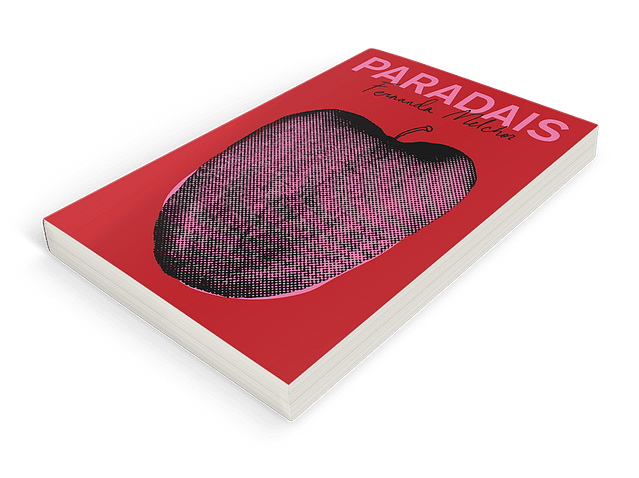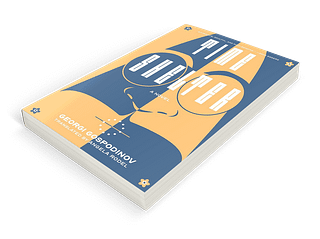
Paradais
Fernanda Melchor
Translated by Sophie Hughes
New Directions, $20
For a certain kind of novelist, a monomania of theme and style may be less a defect than the very point. Theirs is an intent to conjure a world with peculiar intensity, its inhabitants less autonomous agents than hapless pawns consigned to tidal forces that we come to recognize as something like fate. Such is the design of Fernanda Melchor’s fiction — her 2020 debut, Hurricane Season, and her new novel, Paradais (both translated by Sophie Hughes) — and their inimitable vision of contemporary Mexico. Melchor’s worldview is baroque in essence: her torrential prose renders a world of ubiquitous suffering, its relentless swell punctuated only by acts of gratuitous, meaningless cruelty. This is a world premised on the absence of transcendence, compliant instead to an economy of coercive violence and erotic rage (and their coincidence in machismo), where the only prospect of escape is in a death without meaning. It is a vision that would seem ridiculously exaggerated, perhaps even toeing the line of aestheticized pornography, if even a cursory glance at a Mexican newspaper today did not root it in a horrific realism.
The caustic irony undercutting the novel’s eponymous neighborhood should hardly come as a surprise. This Paradais is a gated community for wealthy Mexicans — a realm of SUVs, pools and security guards, champagne on birthdays, and regular vacations. It is the epitome of that specifically late-modern simulacrum of worldly bliss grounded in both unconstrained consumption and a willful blindness to its real cost. Just as Dante floated the circles of gluttony and greed upon those of wrath and violence, Paradais is only an enclave within a larger infernal landscape of grim poverty, narcotrafficking, and the extreme brutality incumbent upon them. So despite its heavenly pretensions, it is inextricably fated to be a paradise lost. Ruin is heralded by a teenager from beyond its borders, Polo, a high school drop-out and precocious alcoholic, who is hired as “the lawn waterer, the tree pruner, the turd scooper, the car washer, the chump who appeared the second these assholes whistled for him: the lackey.” If Polo is an emblem of anger, wallowing in self-pity and indignant about the degradation of work, his accomplice Franco (or usually just “fatboy”), a coddled inhabitant of Paradais, is an allegory of gruesome and impenitent lust. Convening on a river dock to one side of Paradais, they guzzle alcohol and churn through cigarettes courtesy of cash Franco has stolen from his grandparents. Franco then proceeds to pontificate upon the single thing occupying his mind: the Señora Marián Maroño, a particularly wealthy resident of Paradais, wife to a TV-famous “bald, short-ass of a husband” and mother to “reedy Andrés and the spoiled cry-baby Miguel.” Overwhelmed with desire, ardent to the point of frenzy, Franco lusts after her as a submissive vehicle of pleasure, a body (like so many other femme bodies in Melchor’s fiction) reducible to its consumable parts, “her blow-job lips, her plump ass, her sumptuous tits.” For a figure so central to the plot, we hardly get any idea of Marián as more than object in the distance, disfigured through the lens of Franco’s ravings. Ceding little to the imagination, his depraved fantasies are outlined in painstaking detail, his actions advancing in lockstep with his swelling lechery: from compulsive masturbation to regularly inviting himself to their house, stalking her and, at one point, breaking in to steal her underwear.
Although revolted by Franco’s ramblings, Polo is willing to debase himself to get loaded for free. His role as witness progressively turns to that of accomplice, however, as Franco begins to express a real intention to make good on his most wanton threats. Polo, manically driven to escape his dead-end mire, his “life goal [being] to get the fuck out of there, earn some cash, be free, goddammit, free for once in his fucking life,” is persuaded to join Franco’s conspiracy to kidnap, rape, and murder on condition that he can add larceny to the docket. This crime is Paradais’s center of gravity and structures the novel much the same way another murder does Hurricane Season: both books are vortices, the maelstroms of their prose ineluctably drawn towards, and culminating in, an act of sadistic bloodletting. This sense of fatalism is underscored through the foreshadowing that opens each of the book’s three acts, where the voice of a definitively damned Polo situates the story ex post facto — “That’s how it all began, he’d tell them.” Forcing Polo to account before this unspecified audience (be it the police, jury, or perhaps a higher power), Melchor is also setting up an effective crescendo. The story cycles rapidly forward, away from the unspecified audience and ever closer to a finale all the ghastlier to us because we have been so adamantly discouraged from finding anything surprising about it.
For all the viciousness of its plot, what presses upon the reader most in Paradais are the sentences. Already within the short span of two works, Melchor has made an electrifying bid for the pantheon of modern literature’s great ranters. Alongside her, you might find Elfriede Jelinek, Thomas Bernhard, and László Krasznahorkai, but still Melchor’s style is all her own. Unlike Bernhard, for instance, her rhythms play less into the stilted, recursive tangles of bourgeois world-weariness than the out-and-out forward onslaught of real life: punk rock rage over Viennese decadence. She also notably eschews syntactic gymnastics for the blunter tactic of incessantly compounding sentences, the velocity of aggregation buttressing the cumulative bloat. The fascination of her style, in Sophie Hughes’ stark translation, lies in this simplicity leveraged to an effect at once hypnotic and brutalizing.
Respite, in a relative sense, only comes with the book’s middle third, if not through relief from violence, at least from Paradais’s snares. The raving soliloquies of Franco and Polo give way to a more narrative turn, and the nearest the novel comes to offering the latter a beacon of hope, even if it is ultimately thwarted. Here, we meet Polo’s cousin and role model Milton, the only living figure to treat Polo with anything except outright contempt. Milton had gone missing only to return unannounced, coked up in an expensive pickup truck, regaling Polo with his plight: kidnapped and tortured by narcos with his brother-in-law, who they mutilated and murdered, Milton was pressed into their permanent service, abetting a heist and forced at gunpoint to execute an innocent man. The arc is paradigmatic of Melchor’s moral universe: the extremity of its atrocities might suggest the rare possibility of staking out moral absolutes, yet when we confront these heinous crimes in context, moral judgment is impossible. If Milton is directly responsible for extreme violence, he is so under duress. He pulls the trigger on an innocent man’s head only because a gun is held to his own; he stays with the gang, but under the explicit threat of retribution upon his family. Yet he also rebuts our intuitive sympathy: while he is by no means pathologically sadistic like other characters in Paradais, he barely shows any remorse, simply accepting the new and execrable terms of his life with a blithe amor fati. Meanwhile his distinction as the only person to show Polo a shred of kindness is undermined by a smug hypocrisy. Any moral authority he might wield to urge Polo to play it safe is contradicted by his own actions, an irony not lost on Polo who claims his cousin “would never have preached to him like that, like some dreary constipated priest … the horseshit coming from that fucking hypocrite Milton’s mouth.” The irony that Polo fails to notice, however, is that while he sees in Milton an ideal of escape (and plots his own crime in order to emulate and impress him), his cousin has only swapped one set of inescapable circumstances for another.
Melchor’s moral appeal thus does not court our judgment as much as the pathos of its dwindling possibility. As her lens cycles over Paradais’s cast of characters, the matter of adjudicating right and wrong through a psychological excavation of intentions and apportioning blame feels progressively moot. Her frame is more capacious, compassing instead the whole ensemble against the backdrop of ruthless, deterministic powers that infringe on clear or consistent ethical action. She is a tragedian, tracing human figures at odds with an inhumanity in irremediable excess of them. Yet in this godless world, the vengeful deity of classical tragedy is substituted for the faceless dominion of a social system and its mandate towards the accumulation of capital and bodies. This is not a monolithic force, but a tangled morass of injustice: Paradais is a litany of abuses committed across lines of gender, class, labor, and race (with Milton, for instance, “the lucky prick was half güero… while Polo, well, Polo was prieto, there was no other way to put it, dark skinned and ugly as sin”). Each character is alternately victim and perpetrator, cross-hatched by so many lines of oppression that they become an impenetrable thicket belying moral clarity. This crucial facet of Melchor’s ingenuity is brought into sharp relief when considered against the somewhat tired discourse regarding novelistic ethics that has bogged down the literary climate in recent years: it is her specifically modern uptake of tragedy that enables her to sidestep the pat moralism of much contemporary literature, without cynically eschewing a moral framework altogether. Hers is a canny stance, advocating neither for nor against judgment, but the critical evaluation of its reconfigured premises.
This is taken to a squeamish extreme, for instance, with Polo’s cousin Zorayda, who molested him as a child and continues to harass him while he financially supports her. Polo’s pent-up rage culminates in his raping and impregnating her; this however only intensifies her advances to which he responds with further violence. A positive feedback loop ensues, as his attempts to sexually humiliate her into submission only embolden her overtures, and his consequent self-loathing only amplifies his rage. The result is a queasy rally of weaponized sex, one stripped of anything erotic where the two parties attempt to reduce the other to a purely servile body. Trying to keep stock of this on the balance sheet of a moral calculus feels perverse. The situation again speaks towards the distinct texture of Melchor’s moral universe: if its fine grain is composed of innumerable acts of zero-sum ultraviolence — murder, beatings, economic exploitation and sexual assault, the countless slurs upon slurs — any definite sense of oppressor and oppressed is soon muddied, and the only certainty is the incessant circulation of indiscriminate violence. No analogue feels more apt than the panoramic hellscapes of Hieronymus Bosch: a sprawling array of absurd suffering, precise in its details, gives way to a vertiginous ungraspability once you pull back to take in the canvas’s totality.
But if Paradais stakes itself upon the same broad terms as Hurricane Season, Melchor ultimately executes them here differently. This is in part a matter of narrowed scope: for one, Franco is simply a repulsive character lacking any of the mitigating complexities that exculpate other figures into moral ambiguity. This would not be an issue if he played a bit part, but because his vile intentions are the plot’s motor, he risks a cartoonish quality that could trivialize horror into pornography. If Melchor ultimately does not fall prey to this trap, it is only because the book’s frenetic pace coupled with its brevity does not allow enough time for our visceral disgust to lapse into cynical boredom. Similarly, whereas Hurricane Season conjures much of its stylistic brilliance not only from its cascading sentences but the polyphony of voices it overlays upon them, Paradais lives out its entirety in Polo’s head. Polo is at least a more equivocal personality than Franco, and even if this singularity of perspective is likely a conscious choice, heightening as it does the novel’s claustrophobic mood, it does deprive the book of the stylistic ethics evinced in Hurricane Season’s humane commitment to a range of viewpoints, even in hell. Again, however, Paradais’s concision is what absolves this potential failing. Does this narrowed scope sometimes make Paradais feel like an afterthought to its predecessor? Perhaps. But this is by no means detracts from the inventiveness of Melchor’s vision. Indeed, if Hurricane Season was epic and open-ended in its ambition, Paradais is a formal counterpoint, aspiring as all novellas do to the ideal condition of a self-contained and perfectly constructed object.


